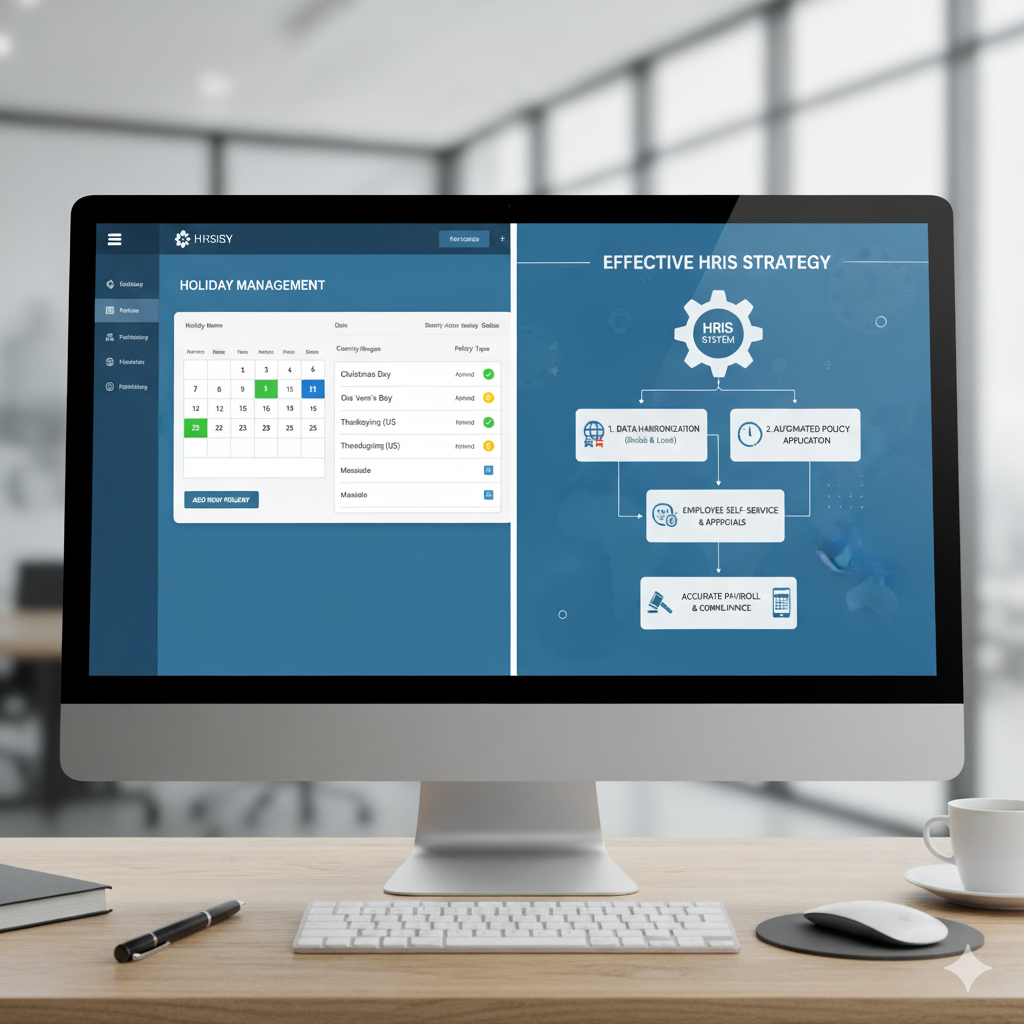Managing holidays in your HRIS (Human Resource Information System) may seem like a small administrative task, but it plays a critical role in payroll accuracy, attendance tracking, and compliance. In this guide, we’ll show you how to effectively manage holiday tables using the right HR tools and best practices to keep your data accurate and your HR operations running smoothly.
What Is a Holiday Table in HRIS?
A holiday table (or holiday calendar) is the configuration within your HRIS that defines:
- National and regional holidays
- Company-declared holidays
- Floating or optional leave days
- Special organization-wide non-working days
Your HRIS references this data for multiple modules — including payroll, timekeeping, and leave management — ensuring that all calculations reflect the correct schedule.
For example, if a public holiday isn’t properly added to your HRIS holiday table, employees might be incorrectly marked absent or underpaid.
Why Effective Holiday Table Management Matters
Maintaining an accurate holiday calendar in your HRIS impacts several key HR functions:
✅ 1. Payroll Accuracy
Ensures correct holiday pay, overtime calculations, and salary deductions.
📅 2. Employee Scheduling
Helps managers create work rosters and plan resource coverage around holidays.
⚖️ 3. Legal and Regulatory Compliance
Aligns with labor laws and prevents non-compliance penalties.
💬 4. Employee Experience
Improves transparency and trust when employees see correct holidays reflected in their self-service portals.
Even one missing or duplicated holiday entry can disrupt automated processes — leading to manual corrections and employee dissatisfaction.
Step-by-Step: How to Manage Holiday Tables in Your HRIS System
Step 1: Review the Previous Year’s Holiday Data
Start by reviewing last year’s entries to identify:
- Obsolete holidays that should be removed
- New national or regional holidays to be added
- Floating holidays that reset annually
Cross-check with official government and regional holiday announcements to ensure accuracy.
Step 2: Create Separate Holiday Tables by Region
- If your company operates in multiple countries or business units, it’s best practice to maintain separate holiday tables for each location.
- Most HRIS platforms (like SAP SuccessFactors, Oracle HCM, or Workday) allow you to assign holiday calendars by region, legal entity, or cost center.
This ensures that employees in different regions see only the holidays relevant to them.
Step 3: Automate Holiday Updates with HR Tools
Many modern HR systems include tools or integrations that let you import or sync holidays automatically.
Examples:
- Workday Calendar Utility – Automates creation and assignment of holidays.
- SAP HR Holiday Calendar Generator – Easily replicates calendars across business units.
- BambooHR or Zoho People – Sync holidays with time-off policies and employee portals.
By automating your HRIS holiday updates, you can significantly reduce manual input and human error.
Step 4: Communicate the Updated Calendar
Once your holiday tables are updated, publish them through:
- Employee self-service dashboards
- Company intranet or HR portal
- Email or internal newsletters
Transparency ensures employees are informed about upcoming holidays and reduces HR inquiries.
Step 5: Test and Validate
Before finalizing your holiday calendar:
- Run sample payroll or attendance reports to verify correct holiday recognition.
- Ensure integration with leave management systems and attendance modules works as intended.
- Confirm time-off accruals and holiday pay reflect the new calendar data.
Testing helps identify misconfigurations before they impact real payroll runs.
Common Mistakes to Avoid
❌ Using the same holiday calendar for all regions.
❌ Forgetting to remove outdated holidays.
❌ Making changes mid-year without notifying payroll or managers.
❌ Not testing after updates.
Even minor oversights can trigger payroll discrepancies and compliance risks.
Best Practices for Long-Term Holiday Table Maintenance
- Schedule an Annual Audit: Review and update holiday tables every December or before the fiscal year starts.
- Document Version History: Keep change logs for compliance and troubleshooting.
- Restrict Access: Limit editing rights to authorized HRIS administrators.
- Integrate with HR Workflows: Link holiday tables directly with attendance and leave modules for full automation.
- Use Notifications: Enable system alerts when holiday calendars need review or update.
Benefits of a Well-Maintained HRIS Holiday Table
When managed effectively, your HRIS holiday table:
- Enhances system reliability
- Prevents payroll disputes
- Improves employee satisfaction
- Supports global workforce compliance
- Saves HR teams time and effort throughout the year
Conclusion
An accurate and well-maintained HRIS holiday table is essential for smooth HR operations.
By combining automation tools, structured processes, and annual reviews, you can ensure your system always reflects the correct holiday data — keeping your payroll accurate, your employees happy, and your HR workflows efficient.
If you haven’t reviewed your HRIS holiday setup lately, now’s the perfect time to do it. A few proactive steps today can save countless hours of troubleshooting later.

